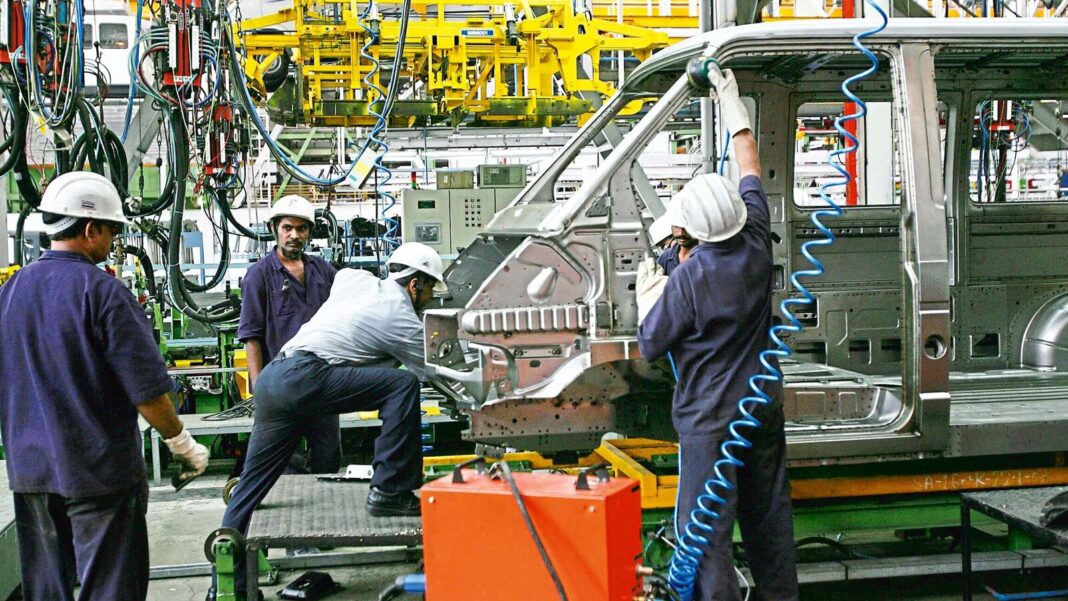In Short:
Workplace safety for automotive workers is a rising concern, with accidents increasing from 799 in FY2021-22 to 1,597 in FY2023-24. Most injuries occurred in supply chains, predominantly in Haryana and Maharashtra. While industry leaders claim adherence to safety protocols, many injured workers are underpaid contract laborers. There’s a call for improved safety standards and practices across all supply chain tiers.
Time to Rethink Safety in the Automotive Industry?
How secure are our workers in the bustling factories that drive the **automotive supply chain** and the brands we cherish? Recent findings raise significant questions about shop floor safety protocol as the number of reported accidents among workers in these factories has spiked dramatically. According to a study by **Safe In India (SII)**, incidents rose from 799 in FY2021-22 to 1,597 in FY2023-24, highlighting the urgent need for reassessment of safety measures within the industry.
Shocking Statistics
The **SafetyNiti 2024 report** revealed that out of 1,998 injured workers in states like **Haryana** and **Maharashtra** during FY2023-24, a staggering 1,597 (80%) were part of the automotive supply chain. The majority of workers in Haryana manufactured parts for **Maruti Suzuki** (543 injured), whereas in Maharashtra, **Tata Motors** (350 injured) held the unfortunate title for most affected. This alarming trend may be linked to the establishment of more SII centers across India, from one to four locations, thereby increasing detection and reporting rates.
The Industry’s Response
Despite these alarming figures, the **Society of Indian Automobile Manufacturers (Siam)** has firmly pushed back against these alarming statistics, emphasizing their commitment to worker health and safety. Director General **Rajesh Menon** stated, “All our members are highly committed and sensitive to worker health and safety. We have launched numerous programs to bolster safety within plants and among suppliers. It’s also crucial to note that safety incidents often originate within a complex tier system of suppliers, and it’s unjust to place the blame solely on vehicle manufacturers.”
A Commitment to Safety
Safety is non-negotiable for **Maruti Suzuki**. A company spokesperson shared, “We are unwavering in our commitment to promote a safety culture that engages everyone from our leadership team to frontline workers. Continuous improvement is a priority, with over 230,000 suggestions made by our employees last year to enhance safety practices. Additionally, more than 12,000 employees underwent training on various safety aspects. Our proactive monitoring led to a significant **zero fatalities** record for work-related injuries in FY2024.”
The Human Impact
It is heart-wrenching to learn that many of these injured workers were on contract, earning below ₹15,000 per month, often working **12-hour shifts, six days a week**. Tragically, 67% of them lost body parts due to accidents, forever altering their lives and families’ futures.
Challenges Ahead
While the focus is often on industry leaders, **Automotive Components Manufacturers’ Association (Acma)** recognizes the broader challenges at hand. “It’s essential to confront the reality of accidents happening in informal sectors, particularly with Tier-III suppliers that are not members of Acma. We must collectively adopt best practices and collaborate with the government to address these pressing safety concerns,” said director general **Vinnie Mehta**.
Leading by Example
The spokesperson from **Maruti Suzuki** further emphasized their role in spearheading safety across their expansive supply chains. “While our suppliers operate independently, we strive to influence safety standards. We reward Tier-1 suppliers that actively enhance safety practices among their Tier-2 suppliers, continually measuring and auditing safety protocols,” the spokesperson conveyed.
A Vast Issue
SII has been pivotal in supporting over 8,000 injured workers since 2016, with more than 6,000 of those injuries occurring in the automotive sector. The report noted similar issues affecting workers in automotive hubs such as **Tamil Nadu**, **Karnataka**, **Uttarakhand**, and **Rajasthan**.
The Culture of Safety
According to **Aditya Narayan Mishra**, CEO of **CIEL HR Services**, “A true safety culture has yet to infiltrate the core of original equipment manufacturers (OEMs) and their vendors. While training and safety measures have improved, there’s much more work to do. Often, workers endure grueling schedules without full awareness of their health risks, making them more vulnerable to accidents.”
The Need for Significance
It’s concerning that, according to the study, many brands have yet to take serious action to enforce safety within their deeper supply chains. Only **Bajaj, Maruti Suzuki, and Tata Motors** monitor Tier-1 suppliers regarding critical metrics such as worker appointments, ESIC registrations, and injury reporting.
Recent Efforts
In a bid to strengthen safety measures, **Maruti Suzuki** had previously collaborated with Tier-1 suppliers to enhance human safety at Tier-2 suppliers, particularly in safety-critical operations such as plastic molding and sheet metal work. Over 340 Tier-2 suppliers were audited and several machines improved by integrating critical safety features.
A New Initiative
Continuing their dedication, Maruti Suzuki and its Tier-I partners have recently initiated a comprehensive human safety audit covering around 1,500 Tier-II suppliers. This effort aims to identify gaps and forge joint improvement plans, thereby enhancing overall safety.
Additionally, the **Employees State Insurance Scheme** remains committed to providing medical and financial support to employees in the organized sector during times of sickness or disability.





